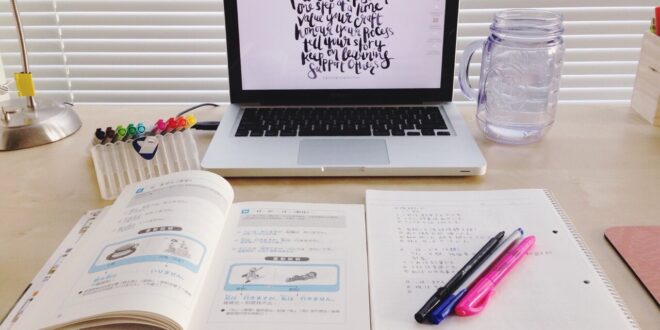The COVID-19 pandemic and subsequent lockdowns has caused a stir in all sectors; from health, to business, and even education. Most schools across the world have been forced to shut down and send students home as the virus spread faster than countries can handle cases.
With nationwide shut downs across many countries, students and teachers have resorted to online classes to continue the curriculum. While each school has devised unique plans to create a system that works best for its student population and the instructors, there is no doubt that there are quite a number of risks involved with virtual learning.
Undeveloped Countries

While First World countries like the United States already have the infrastructure in place for students to conveniently switch to online classes, other less privileged countries have found it difficult to make the switch from physical classes to virtual classes. A couple of things hinder students in many parts of Africa and India from connecting to online classes. This means that while their counterparts in more advanced parts of the world continue with their education, students in these countries will have to wait until the end of the pandemic to begin receiving physical lectures again.
Internet Problems
There are many reliable internet providers to choose from now, but there is always the chance of connectivity issues once in a while. This could easily impede the focus needed for both teacher and student to get their message across, and learn.
Availability of Devices

High income families might not have this problem, but not every family is privileged to afford a device or more for each member of the family. A family that has one computer for all the children to share will find it impossible to carry on that way with the onset of online learning. This means a larger financial strain that the family might not be ready for.
Security
Safety on the internet has always been a fickle thing, and it is an even bigger concern now that so many underage children have access to the internet as they engage in some form of online learning. There are chances of a security breach with confidential information getting leaked, hacked accounts, scams, and other forms of internet fraud.
Isolation

Humans are social by nature, and one of the things your kids will probably miss about leaning in a classroom is the chance to interact with their friends, classmates, and teachers. Your child’s education does not just end at lessons the teacher teaches. Interactions with their classmates will teach them how to share, socialize, and co-exist with other people.
While the world tries to recover from the novel coronavirus, there is little we can do except make some adjustments to our lifestyles, and comply with health guidelines.
Little kids in kindergarten and grade school are the ones to be most concerned about with the introduction of online learning, but with free printable PDF worksheets, you can help your kids learn in a safe and controlled environment. For free printable PDF worksheets, click here.
Help me do it myself
As a rule, however, children should be able to do their homework independently. That doesn’t mean that you can’t help. The best way to do this is with help for self-help. “A little food for thought, a piece of advice or hint is sufficient to get the stalled thought process keep going and to allow them to complete homework,” says the educational science lecturer. “This kind of help does not take away the child’s effort nor the sense of achievement, but it can save him the despair in the afternoon and also the embarrassment in the school morning when the tasks are discussed. ”
Problem: parents too emotional

Parents lack the distance that a professional tutor, for example, has. Another problem with parental homework help is that father and mother often lack the emotional distance to their offspring, according to the expert Hoffmann. “They always try to predict answers too quickly and provide solutions,” says Henry. The child then has no time to think and work out solutions for himself. “Consequently, it rapidly loses motivation, which ultimately arouses parent’s frustrations.” In the worst case, this affects the willingness and behavior of the student to learn.
Carefully lead the child to a sense of achievement
Specifying the solutions does not help anyone. The child still did not understand the way there and the teacher, for whom the homework is a feedback on whether the material has been understood, does not notice anything, because the tasks are solved perfectly. The educational researcher Ulrich Trautwein, who deals extensively with the influences of homework on student performance, found a clear comparison in an interview with ‘the time’: “Parents want to help their children. But ‘wanting to help’ does not always make sense. (…) Active help must remain the exception. It’s a bit like the distribution of medication. If short-term interventions are made, for example in the case of headaches, it makes sense. Long-term interventions, on the other hand, lead to dependency.
This attitude can also be transferred to the child, so that they soon no longer trust themselves to deal with a task independently. In addition, this deprives him of the beautiful and inspiring sense of achievement that can only arise after a task that has been completed independently. “This attitude can also be transferred to the child, so that they soon no longer trust themselves to deal with a task independently. In addition, this deprives him of the beautiful and inspiring sense of achievement that can only arise after a task that has been completed independently.”
Boost self-confidence

Homework should be such that it challenges the student but can still be done. And that’s often where the problem lies. Many children doubt that they will be able to do the job. An ‘I can’t do this’ often only means ‘I don’t trust myself to do this’. Recognizing this is not always easy. Offer to ask your child at any time if they get stuck and that you go over the results with them. But also strengthen their self-confidence by motivating them, guiding them through specific questions, finding solutions on their own and praising the right work steps.
Children have to learn to take responsibility
Children should learn early on that they are responsible for their own homework. This includes keeping a homework booklet as well as performing it reliably. Of course you can help the child here – especially at the beginning. But you shouldn’t convey to him that you just have to call classmates every time to find out what to do. Sometimes it can even be advisable to send them to school without having done their homework so that they experience the consequences of their inattentiveness.
There is no place for criticism here

Constant admonitions, criticism and pressure do not help the child and only have the effect that he no longer feels like it and at some point no longer trusts himself to cope with tasks alone. If the child regularly uses homework to break an argument, then there can be a very simple reason. Often these children just want to spend more time with their parents and thus demand their attention. Here it can be helpful to offer the child the prospect of a joint undertaking when the tasks are finished. No big excursion is necessary for this. Playing together or looking at a book is often enough.
Having fun learning to get better grades
No more dry learning: We have brought school material again into life. An appealing design, age-appropriate cartoon characters and learning stories as well as motivating functionalities such as the best list ensure a lot of fun, which promotes learning motivation and thus guarantees learning success. Scientific tests have shown that the performance of students learning with kidsacademy.mobi improves significantly. The content is suitable for both those who are thirsty for knowledge and who like to be one step ahead, as well as for students who want to catch up on the subject matter or who want to do their next class test.
 Hi Boox Popular Magazine 2024
Hi Boox Popular Magazine 2024



